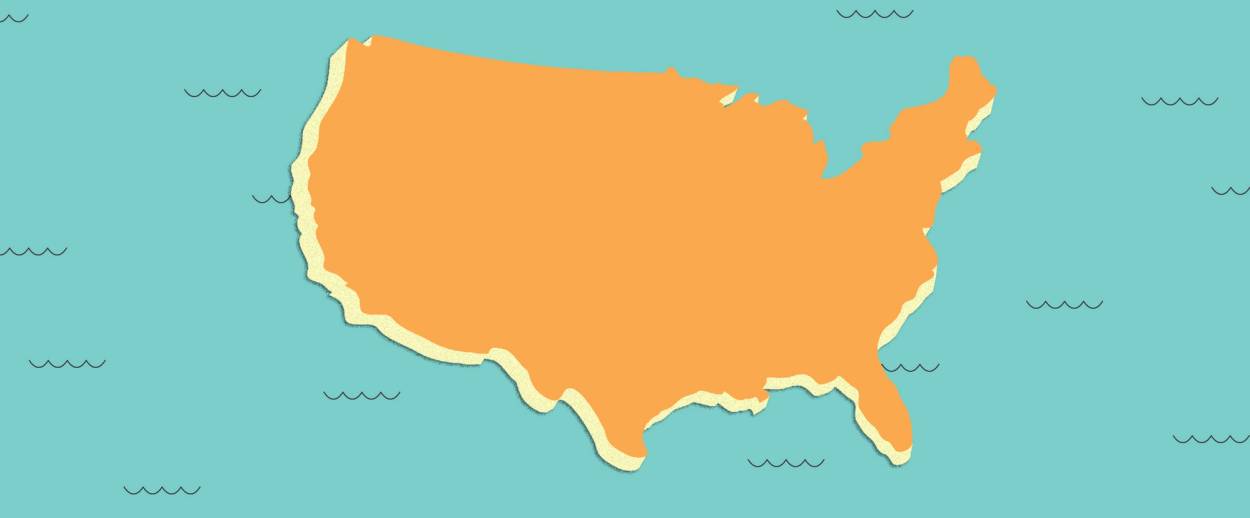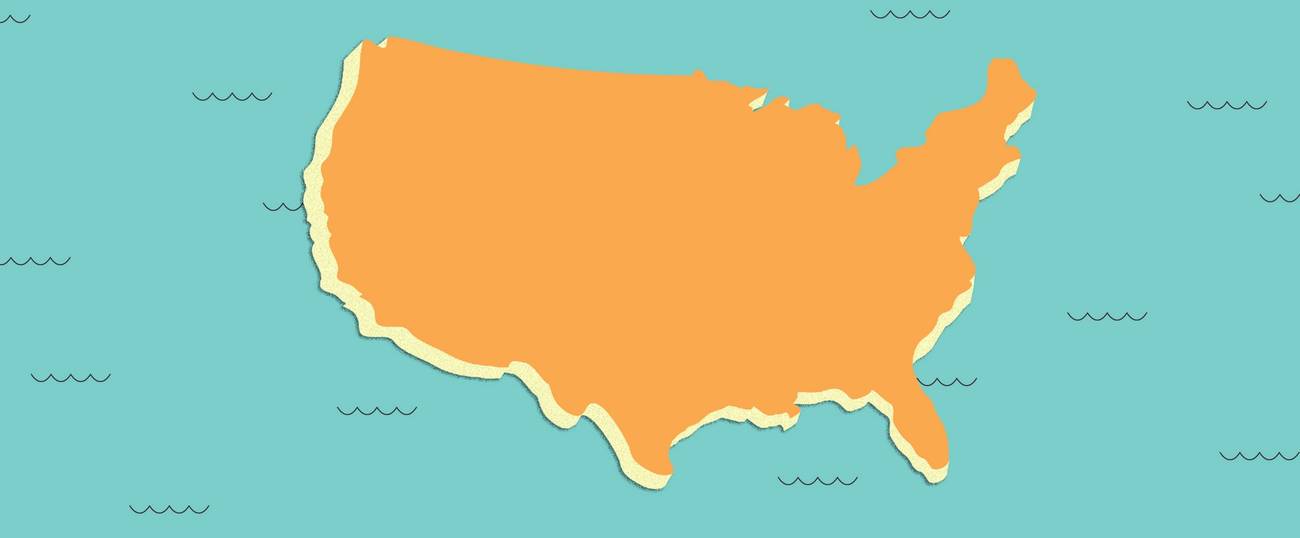The New American Isolationism Will Outlive Barack Obama
With Trump, Clinton, Sanders, or Cruz, the United States is likely to consolidate a risky retreat from the global stage




Isolationism is as old as the Republic—ever since Thomas Jefferson laid down his “no-entangling alliances” doctrine and John Quincy Adams warned against going “abroad in search of monsters to destroy.” Later on, war and weariness would trigger the reflex along partisan lines—Republicans after World War I, Democrats during Vietnam. Now it is not left vs. right, but a bizarre alliance of both, intoning that old musical “Stop the World, I Want To Get Off.”
Take Donald Trump, who sails under the Republican flag. He calls the Atlantic Alliance “obsolete” and accuses the Europeans of “ripping off the United States.” Let NATO “break up.” Protect Japan? “We are just not going to be able to do it any more.” Instead, “we have to rebuild our country.”
Cribbing from John Quincy Adams, Trump orated in his April 27 foreign policy speech: “We do not go abroad in search of enemies.” No more “nation-building,” no more such “total disasters” as NAFTA, which had “emptied the states of manufacturing and jobs.” Good-bye to TTIP and TPP, the free-trade deals with Europe and Asia. Trump’s slogan “America first!” goes back not to John Quincy Adams, but to Charles Lindbergh whose “America-firsters” fought against entry into the war against Nazi Germany on Britain’s side. If the allies don’t pay up, Trump keeps thundering, we must “let these countries defend themselves”—as if NATO and Japan were not America’s first line of defense against its foes and rivals.
Trump will find little disagreement on the left, which has grown comfortable with President Barack Obama’s mantra: “It’s time for a little nation-building at home.” Like Mr. Trump, he growls: “Free riders just aggravate me.” Sending in the U.S. cavalry to “impose order”? We “just can’t do that any more.” What about the Middle East? In The Atlantic, Jeffrey Goldberg paraphrased the president: “The region is no longer terribly important to American interests.”
Farther to the left, Bernie Sanders intones, “We cannot and should not be policeman of the world, nor bear the burden of fighting terrorism alone.” Expanding entitlements and social spending at home comes first. Call this “welfarist isolationism.”
Back to the right, to Ted Cruz who loves bombs and bullets. Recall, though, that decimating America’s enemy du jour has always been the flip side of isolationism. Kill ’em, and clear out. Wipe out ISIS ? Sure, but “first and foremost,” Cruz wants to “make border security a top priority,” given the threat of “ISIS activities on our southern border.” This is the oldest isolationist dream: America First, the Novus Ordo Seclorum as fortress shielded by two oceans—and now by concrete and brigade-sized border patrols. And there goes the “indispensable nation” in a bipartisan blaze of insouciant resentment.
So, who will mind the store? As retold in the Atlantic, the 44th president wants “to spur other countries to take action for themselves, rather than wait for the United States to lead.” So, if we abscond, others will take up the slack. They will take care of “jihadist terror, Russian adventurism, and Chinese bullying.”
Such a pious hope betrays a fundamental misreading of what it means to be Mr. Big. Without a leader, who assumes a disproportionate share of the costs, who recruits and rewards, alliances will neither arise nor endure. Unless the kingpin underwrites the safety of each and all, his minions will pass the buck, make nice to his rivals or defect altogether.
Yet Washington is hardly the patsy in this game, as the neo-isolationists would have it. With its far-flung interests on the line everywhere, America stands to profit most from global order. The United States is the only player who can uphold regional balances while tying them together globally.
Imagine that Obama had led a posse into Syria early on—not, heaven forfend, to “nation-build,” but to set up safe havens. Letting Mr. Putin call the shots has driven millions of refugees into neighboring lands, while giving ISIS a “free ride” into Europe, America’s forward-bastion since World War II. Outsourcing Ukraine to the European Union has not stopped Russia. By leaving Iraq in 2011, Obama enabled ISIS to set up its own “state” whence it can strike all over the world. Now U.S. forces have been returning to claw back what was lost to the “jayvee team,” as Mr. Obama used to ridicule them.
Will Hillary Clinton ride to the rescue as 45th president? A recent piece in the New York Times Magazine by Mark Landler paints her as the last “hawk” among the candidates; she is one “tough lady.” In the internal debates, the then-Secretary of State is reported as always taking the harder line on Syria, Iraq, Afghanistan, and North Korea—and on China, when it was probing the U.S. defense perimeter in the Yellow Sea.
So much for the admiring reportage. Will Clinton be a “tough lady” in the White House? The best answer is: We don’t know. Occasionally, she sounds the traditional trumpet, which would call the United States to lead from the front. Yet her record in office does not quite match the glories of Landler’s prose. Clinton supported Obama’s hasty retreat from Iraq that gave us ISIS. She refused to call the attack on the U.S. compound in Benghazi in 2012 a pre-meditated Islamist offensive. She was also the author of the starry-eyed “reset” Vladimir Putin has ignored in favor of Russia’s resurgence. Yes, Obama’s failure to honor his “red line” against Assad’s chemical weapons, “cost us,” Clinton later conceded. But at the time, she cheered the decision.
Whoever wins in November, it seems safe to say, the nation is turning inward. Isolationism worked very nicely when the Royal Navy patrolled the Atlantic in the 19th century. Today, there are no great powers around to take care of business if the United States continues to slink off into self-containment. There are only rivals like Russia, China, and Iran who are happily expanding into their surrounding neighborhoods and beyond.
The “indispensable power” cannot take time off—that is the bitter lesson of Obama’s two terms. Yet the candidates, left or right, are talking like Jefferson and J.Q. Adams. Hillary Clinton may be the odd woman out. But if she is, she isn’t exactly banging the drums. While America’s earlier bouts of “inwardism” have been short, as after WWII, Korea, and Vietnam, this time, the global power game is is up for grabs. Ambitious players like China, Russia, and Iran, not to speak of ISIS, have never seen a vacuum they did not like. As a result, the future that the new isolationism promises us is likely to be nasty, brutish, and long.
***
Like this article? Sign up for our Daily Digest to get Tablet Magazine’s new content in your inbox each morning.
Josef Joffe, a fellow of Stanford’s Hoover Institution and former editor of Die Zeit, teaches international politics and security at the Johns Hopkins School of Advanced International Studies in Washington.